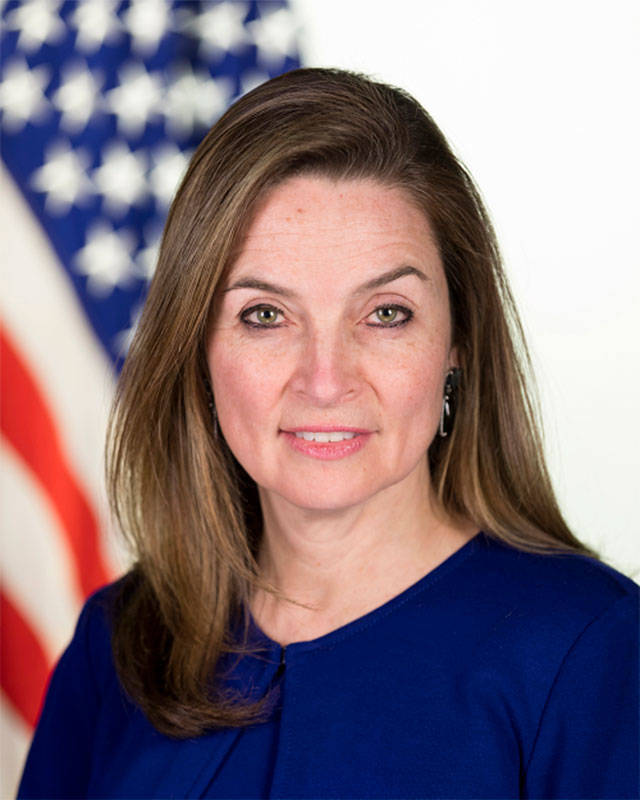By Eric Yoder / The Washington Post
President Donald Trump on Friday replaced his federal personnel director, who had been in office only a matter of months, and assigned that role to a senior official of the White House’s Office of Management and Budget.
The assignment of OMB Deputy Director for Management Margaret Weichert as acting director of the Office of Personnel Management is consistent with the administration’s intent to bring decisions on federal personnel policies into the White House. In a telephone interview, however, Weichert stopped short of calling the assignment a step toward accomplishing that goal.
“I wouldn’t say that it is directly related to that. What I would say is that the broader objectives of the president’s management agenda are focusing on driving and really modernizing how we think about governing and our workforce in the 21st Century. The president wants me to continue the work that we are doing around the president’s management agenda,” said Weichert, who will remain in her role at OMB as well.
She replaces Jeff Tien Han Pon, a veteran of human resources positions inside and outside the government who had headed the central personnel agency only since March. The White House did not provide a reason for replacing him.
The OPM is an independent executive branch agency whose top several officials are political appointees subject to Senate confirmation. The change will again leave the agency without a confirmed leader for an indefinite time. Before Pon’s confirmation, OPM had been led by acting directors since mid-2015, when the then-director resigned after revealing the theft of personal information on more than 20 million people from two OPM databases.
The plan to shift personnel policy decisions into the White House, part of a larger government reorganization initiative, has drawn opposition from federal unions that argue that it would risk politicizing the hiring, promotion, disciplinary and other policies for the 2.1 million career federal employees.
Pon’s main focus however had been to seek a thorough overhaul of civil service laws on the 40th anniversary of the last major revision, the 1978 Civil Service Reform Act, arguing that many provisions are outdated and that what he called “piecemeal” changes since then to hiring, performance, rewards and other policies have been insufficient.
He did not meet his self-imposed goal of proposing legislation to Congress before this year’s elections, although the administration did issue three executive orders aimed at restricting the role of federal unions and enhancing management’s powers in disciplining employees. A federal court later issued an injunction against major parts of all three, however, a decision that is now being appealed.
Weichert said the administration will continue to pursue those policies under her leadership at OPM.
“The direction that we’re going in that has been spelled out in a number of documents including the reform and reorganization plan, those reflect the administration’s go-forward perspective. I think as we engage in the execution of some of those we’re learning things that will inform the how of the execution. But I think the fundamental policy direction remains the same,” she said.
In a statement, OMB Director Mick Mulvaney said, “The President made a fantastic decision to designate Margaret Weichert as the Acting Director of OPM. Margaret has my full trust and support, and I know she will hit the ground running to ensure the federal workforce has the right skills and tools to deliver the proper services to the American people.”
The reorganization plan also calls for moving to the General Services Administration the OPM branches that administer federal insurance and retirement benefits and the training and other services it provides to other agencies. Further, the Defense Department would take over from OPM responsibility for conducting background investigations government-wide; that department already is set to assume that responsibility for its own employees.
Such changes likely would take some time to accomplish although no timetable has been set.
“It wouldn’t be practical to move such a large entity as OPM is today into the White House,” Weichert said. “That’s just not the nature of the type of functional activities in the White House. The things that we proposed in the reorganization plan were very much focused on what are the policy functions that are similar” to those of other parts of the Executive Office of the President.
Talk to us
> Give us your news tips.
> Send us a letter to the editor.
> More Herald contact information.

























